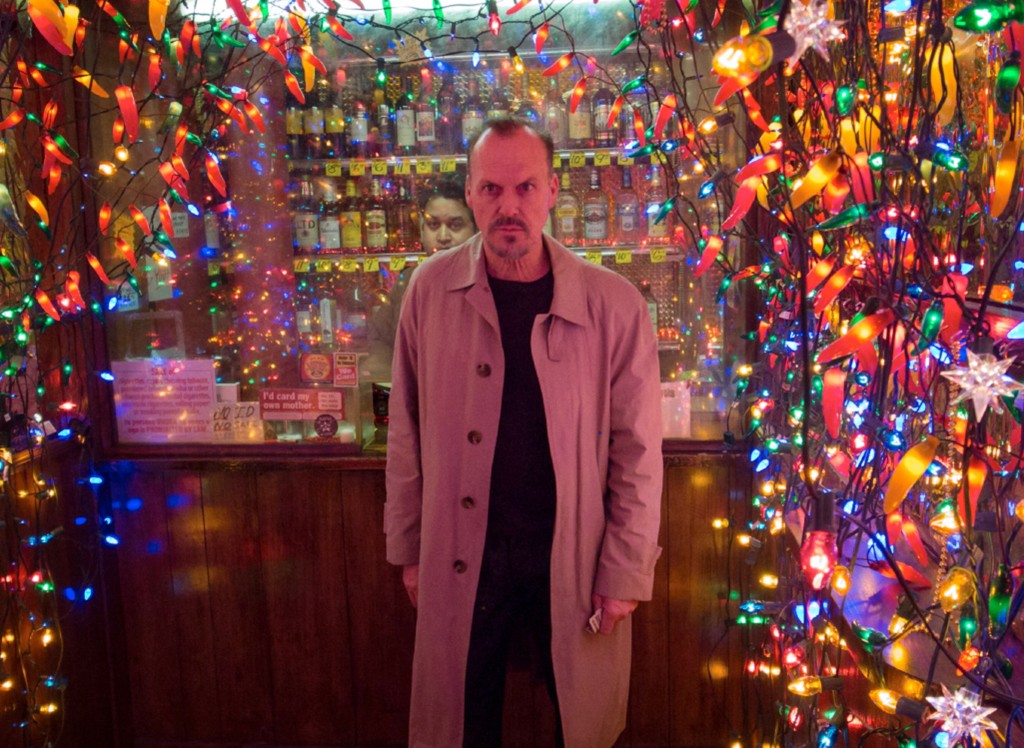
When you listen to a great jazz ensemble, there is a constant rhythm pulsating through the entire audience. The musicians come together, each bringing their own unique flair. You cannot tell whether or not each beat was measured to the tenth of a beat or improvised, but it doesn’t seem to matter.
Alejandro G. Iñárritu’s latest feature, “Birdman,” is the cinematic equivalent of a great jazz ensemble. Michael Keaton plays Riggan Thomson, a washed up actor most known for playing the superhero Birdman — much like Keaton as Batman in the late ’80s — on the verge of a mental breakdown. Thomson is introduced levitating in the air but the film stays vague on whether or not some of the mystical things he does is delusions or real. In an attempt to revitalize his career, he stages a Broadway adaptation of Raymond Carver’s “What We Talk About When We Talk About Love.”
“Birdman” is collaborative effort. He uses the genius of cinematographer, Emmanuel Lubezki, along with the help of CGI and simple cinematic trickery to make the whole film seem like it was one continuous take. The ebb and flow of the camera moves with grace, such that cinematography should be confused with choreography. Iñárritu calls upon an ensemble of actors — Edward Norton, Emma Stone, Naomi Watts, Zach Galifinakis and, of course, Michael Keaton — and calls upon them each to perform a solo, just to fall into the background to create a harmonious sound. The film’s score is a literal percussion solo by Antonio Sanchez, constantly beating, giving rhythm to the actor’s motions and speech.
“Birdman” is a different film in Iñárritu’s career. He has shown flashes of brilliance before in “Amores Perros” and “Babel,” but his overbearing, self serious cynicism overshadowed any virtues from those films. Naming a trilogy of films “The Death Trilogy” makes it very hard to add some levity to it. Iñárritu is part of a Hispanic film collective that includes Guillermo Del Toro, Pedro Almodovar and Alfonso Cuarón, but before “Birdman,” Iñárritu did not have the world cinema credibility that the other three have or the approval of the populace that Del Toro and Cuarón had with the their big budget adaptations.
“Birdman” is seemingly Iñárritu’s attempt to find that balance of bloated blockbuster and self indulgent artist. He satirizes Edward Norton’s actor character, a man who can only be real on stage but fake everywhere else. Norton is a foil for Keaton’s Thomson; an actor with respect and credibility. There is also a real contempt for print criticism and journalism. Print media journalists that appear either make highfalutin comparisons in an attempt to show off or are looking to find a controversial angle to get the most hits on their website.
Yet, Iñárritu satirizes the need for the blockbuster. Broadway is right by Times Square, populated by men and women in superhero costumes scrounging for money. The camera constantly captures billboards, whether purposely or just because it is unavoidable in New York City, of overblown-for-the-masses Broadway musicals like “Phantom of the Opera” or “Motown.” And Thomson, a conduit for Iñárritu, is struggling with that conflict. He constantly reflects on whether or not he should have done the fake “Birdman 4.”
But Iñárritu’s themes become dubious as Iñárritu begins to sneer at the audience. The film’s sincerity is undercut by pretension and preachiness. The title, “Birdman, or the Unexpected Virtue of Ignorance,” is already condescending to the audience. It is as if Iñárritu is broadly proclaiming, “this is how you do it.”
However, the virtuosity of the film is sheer joy. The collection of characters, music, and direction is intoxicatingly fun. Like jazz it will be impossible to resist. Just give into the ignorance.


